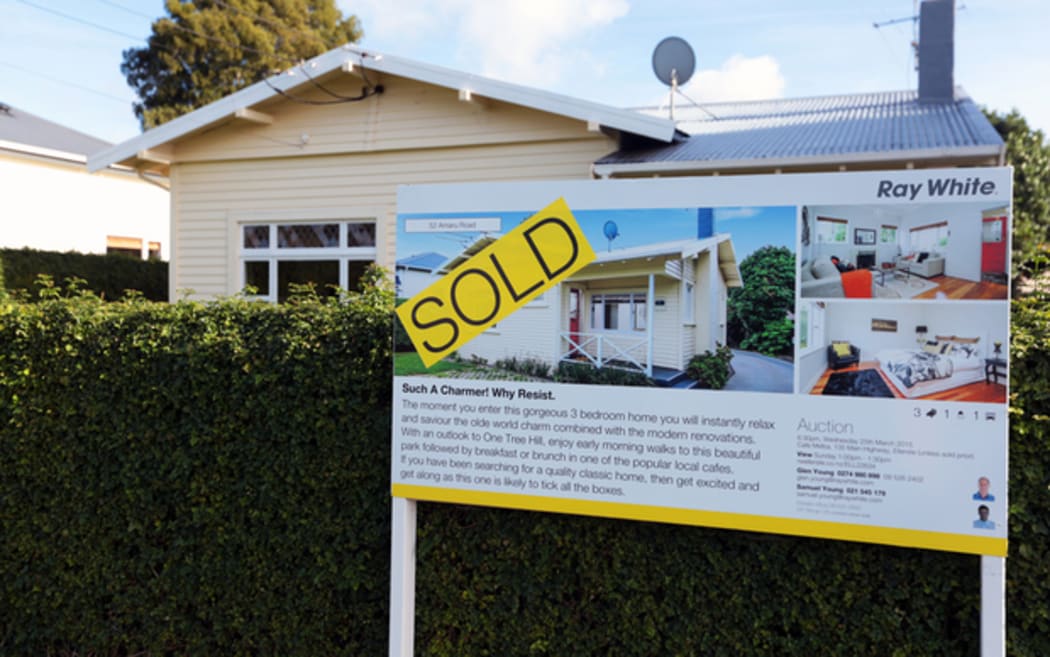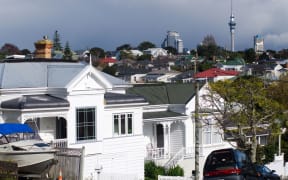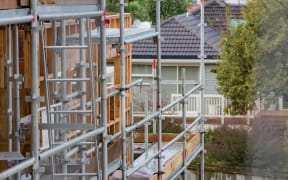Auckland house prices might have dropped 4 percent, but the cost of putting a roof over your head is still far too expensive, according to property experts.
Slow-rising house prices do not make it easier for thousands of people to buy, they say.

House Prices Photo: RNZ
The latest Real Estate Institute New Zealand (REINZ) figures showed a http://www.radionz.co.nz/news/national/320192/auckland-house-prices-fall-4-percent slight fall in prices in Auckland last month].
The median New Zealand house price still hit a record $520,000.
That equated to six-and-a-half years' salary for a typical family - assuming they spent all their money on their home, did not incur interest and did not pay tax.
Ten of 12 regions reached median house price records.
Former Reserve Bank Governor and political leader Don Brash said even if house prices were to plateau, it would take decades for relatively tame wage inflation to catch up.
"In Auckland, you can pay $600,000 to $700,000 for tiny sections of 400 square metres and if you put a tent on a section of that price it is still unaffordable for the great majority of people.
"Simply plateauing does not solve it for most people," Dr Brash said.
"House prices are already at levels relative to wages that make it impossible for people on average wages to ever hope to own their own home."
Christchurch-based researcher Hugh Pavletich regularly compares New Zealand home prices with those in other countries.
His latest publication showed Auckland's house prices, in real terms, were three times higher that those in Dallas Fort Worth, which had four times the population.
That was a burden on people, he said.
"It is effectively a massive tax on them, just having to pay a hugely excessive price to house themselves, just because the Auckland Council is dilatory in releasing land and in financing infrastructure properly."
REINZ director Bryan Thomson did not think the housing bubble would burst.
"If you look at historical behaviour in the market, we had a bit of a pause in the market at the same time last year, moving through into Christmas," he said.
"When people came back in late January and early February, the market lit up again."
Mr Thomson attributed that to low interest rates, strong net migration and a shortage of land for sale.
Nick Goodall, of the property analysts firm CoreLogic, said the recent small hesitation in the market stemmed from Reserve Bank thresholds for home buyer deposits - and higher thresholds for investors.
He did not think it would last. The market would resume its upward trajectory, he said.





